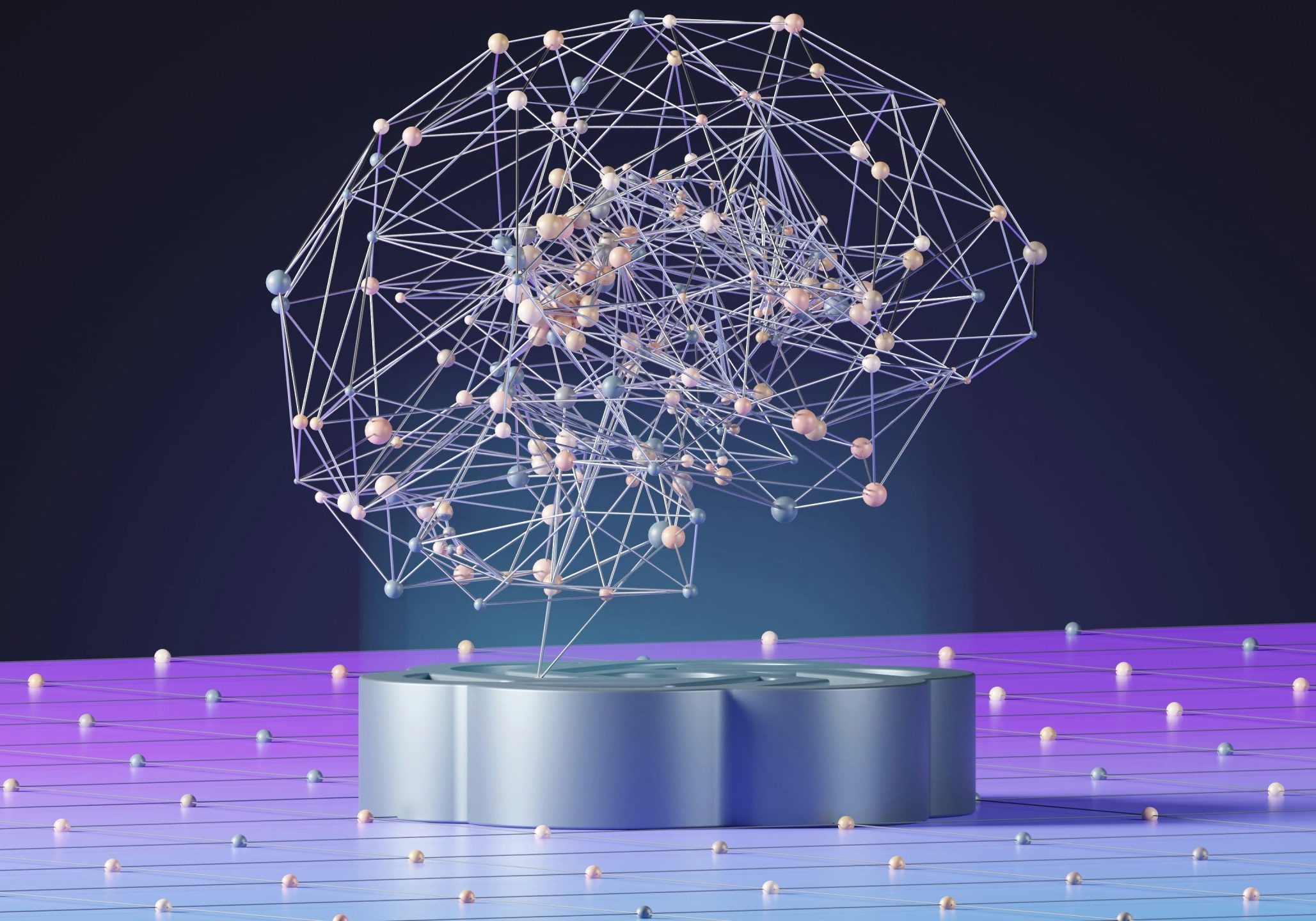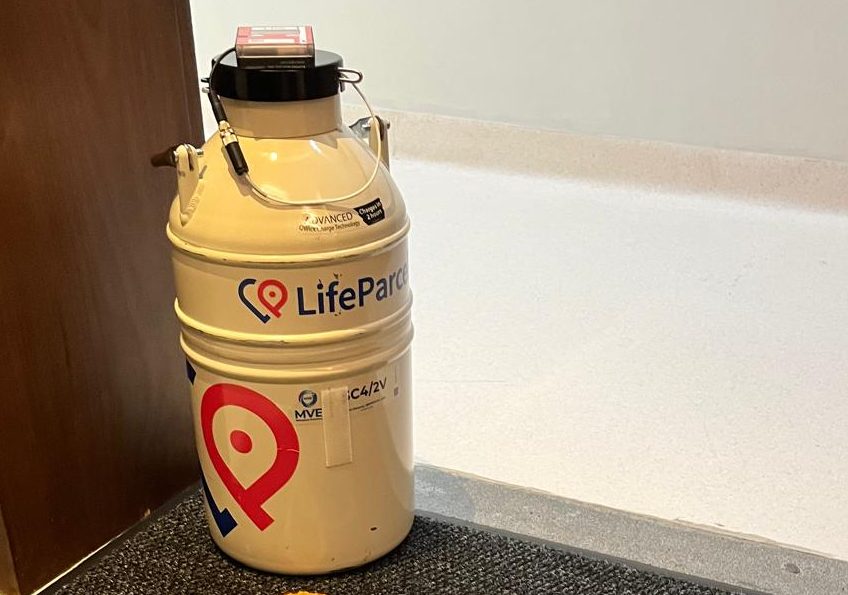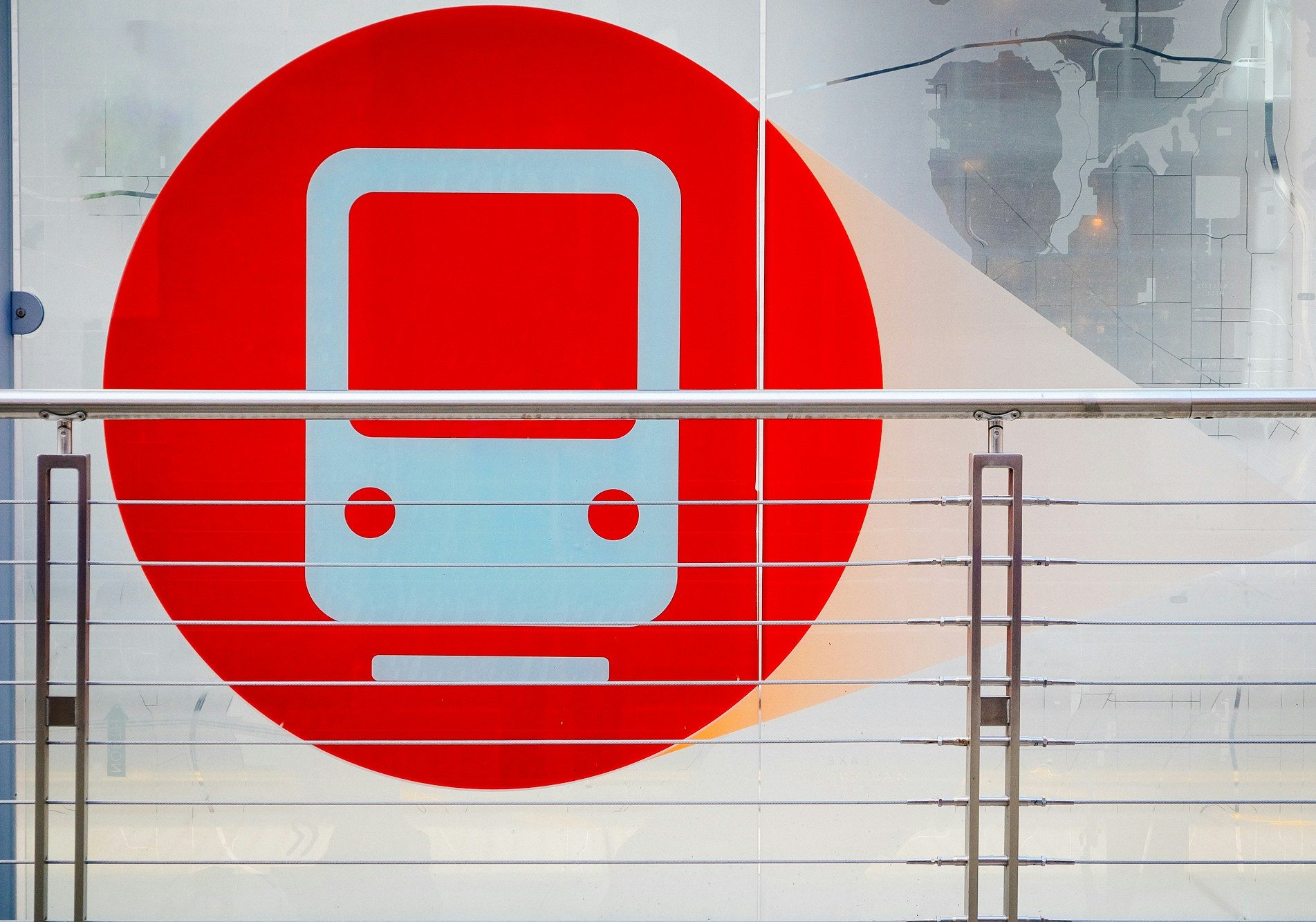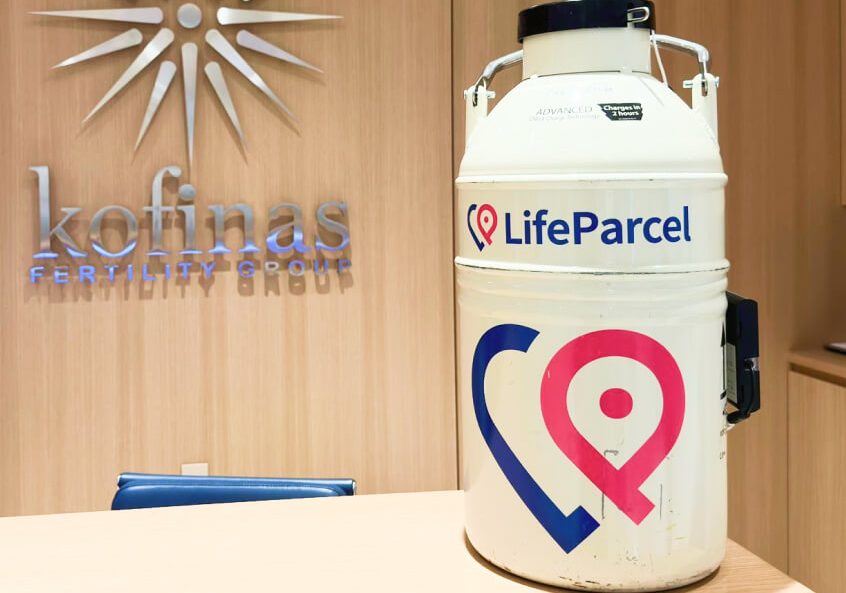The fertility transport industry is evolving, and artificial intelligence is starting to play a role in making shipments safer, more efficient, and less stressful for the families who depend on them.
While AI fertility transport is still in early stages, the potential improvements could address many of the concerns that keep you up at night when your genetic material needs to travel.
Making smarter decisions about routes and timing
Right now, experienced couriers like ours plan routes based on years of knowledge about which flights work best, which customs checkpoints move fastest, and which weather patterns to avoid. AI could enhance this expertise by analyzing massive amounts of real-time data—flight delays, weather systems, customs processing times, even geopolitical events—to help make even smarter decisions.
Imagine a system that notices unusual delays at a particular airport and automatically suggests alternative routes. Or one that predicts a customs slowdown in a specific country and adjusts timing accordingly. This isn’t about replacing human judgment—it’s about giving experienced professionals even better information to work with.
For families waiting anxiously for their embryos to arrive safely, this could mean fewer delays, fewer surprises, and more predictable timelines.
Better temperature monitoring
Today’s cryogenic tanks already maintain stable temperatures for weeks, but AI could make monitoring even more precise. Smart sensors could track not just temperature, but also factors like vibration, humidity, and even the tank’s position during transport.
More importantly, AI could predict potential problems before they happen. Instead of just alerting us when something goes wrong, future systems might notice subtle patterns that suggest a tank needs maintenance or that environmental conditions are trending in a concerning direction.
For you, this means even greater confidence that your specimens are staying exactly where they need to be: safely frozen at -196°C throughout their entire journey.
Streamlining the paperwork nightmare
If you’ve ever dealt with international fertility transport, you know the paperwork is intense. Health certificates, import permits, customs forms—it’s a maze of regulations that varies by country and changes frequently.
AI could help by automatically generating the correct documentation for each destination, cross-referencing current regulations in real-time, and even flagging potential issues before they cause delays. This doesn’t eliminate the need for experienced professionals who understand fertility transport regulations—it just helps them work more efficiently and catch potential problems earlier.
What this means for you: fewer last-minute document scrambles, fewer customs delays, and more confidence that everything is in order before your specimens even leave the origin clinic.
Enhanced security throughout the journey
Chain of custody is crucial when transporting irreplaceable genetic material. AI could strengthen this by providing more sophisticated tracking and verification systems—confirming not just where your specimens are, but who’s handling them and whether all protocols are being followed correctly.
Future systems might use biometric verification to ensure only authorized personnel handle your transport, or AI-powered cameras that can detect if a tank has been opened or tampered with. These aren’t solutions to problems that commonly occur—they’re additional safeguards for something that’s already quite secure.
What this means for AI fertility transport (and you)
At LifeParcel, we’ve built our reputation on the human elements that matter most: experienced couriers who understand what they’re carrying, personal attention throughout the journey, and the peace of mind that comes from knowing someone cares about your specimens as much as you do.
AI fertility transport won’t change those fundamentals. What it could do is make our already careful processes even more reliable. Better route planning, more precise monitoring, smoother customs processing—all in service of the same goal we’ve always had: getting your genetic material safely from where it is to where it needs to be.
We’re not rushing to implement AI just because it’s trendy. When we do adopt new technologies, it will be because they genuinely improve safety and reliability for the families we serve. Every innovation has to meet one simple test: does this help us take better care of what matters most to our clients?
The human element isn’t going anywhere
Here’s what AI can’t do: it can’t comfort an anxious couple whose embryos are traveling overseas. It can’t make judgment calls when unexpected situations arise. It can’t provide the reassurance that comes from knowing a real person is personally responsible for your specimens’ safety.
Technology is a tool, not a replacement for the expertise, empathy, and accountability that make fertility transport successful. The most sophisticated AI system in the world can’t replicate the feeling of security that comes from knowing your courier understands exactly what those frozen specimens represent to your family.
Looking ahead
The future of AI fertility transport will likely combine the best of both worlds: advanced technology that makes processes more efficient and reliable, paired with the human expertise and personal attention that families need during an already stressful time.
For now, the most important thing isn’t whether your courier uses the latest AI—it’s whether they have the experience, track record, and commitment to treat your genetic material with the care it deserves.
As AI technology continues developing, we’ll be watching carefully for innovations that truly improve safety and reliability. When those arrive, we’ll be ready to incorporate them thoughtfully, always keeping our focus on what matters most: your peace of mind and your specimens’ safety.
Want to take the stress out of safe IVF transport? Request a quote or call us at +1-866-370-6577.





